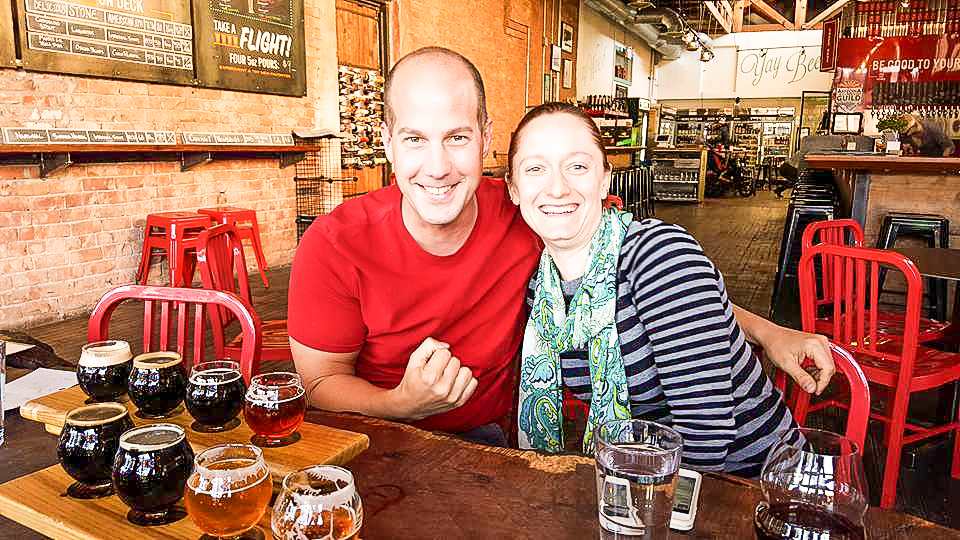Steve Adcock, co-creator of the blog Think Save Retire, is a former software developer who retired at the age of 35 from his well-paying job with $1 million in his bank account in 2016. Joined by his wife, Courtney, the couple has become somewhat of an expert in helping others reach financial independence.
And the best part is that you don’t have to be a financial genius or have mad skills to do this. Even if your goal isn’t to retire early, listening to their advice can help you go a long way in increasing your wealth.

1. Get Your Priorities in Order
The most important thing to do to achieve a goal is to make it your number 1 priority. If you want something, you should make up your mind and stick to it. Setting goals is useless unless you actually have the determination to see it through.
Steve and Courtney were tired of the monotony of the 9-5 life and wished they could travel the world as they pleased. Early retirement became their top priority, so each of them saved 70% of their income, and instead of letting the money lay idle, they invested this in profitable ventures that helped increase their wealth.
It was a tough thing to cut back on expenses so much, but saving themselves from making frivolous purchases became easier over time. It can be difficult to imagine giving up on the “comforts” that we’ve grown accustomed to, but when it comes down to it, these are just unnecessary.
2. Boost Your Income
Steve and Courtney both earned about $200,000-$230,000 per annum through their day jobs. Although Steve’s salary was the primary source of income for their household, both husband and wife sought out other ventures of earning income to increase their wealth. Steve started writing on his financial blog consistently, which bought in about $1000 per month.
The couple also started their own YouTube channel documenting their travels, which earned them $400-500 per month. With freelance writing, AdSense from the YouTube channel, and saving 70% of their income (including raises), they were able to build up a nice little nest egg. Not only did this bring them closer to their goal of retiring early and traveling the world, but it also helped them invest in other ventures which increased their overall wealth.

3. Automate Saving
A lot of money experts suggest taking the thinking (and effort) out of saving. It is usually tougher to manually put away a certain amount of money aside every month but if you set it up so a portion of your income is directly siphoned into your savings or investment accounts, it wouldn’t seem so bad.
Most people lack discipline when it comes to things like paying bills on time, which would lead to additional late fees, interest charges, etc. Not only does this increase your monthly expenses so needlessly, but it can also adversely affect your credit score – which is so important when you want to make big financial decisions. So, you can take a hands-off approach and set it up so that things like your credit card bill and your retirement fund are automatically paid.
4. Appreciate the Value of Money
Most people tend to disregard the value of money. Yes, you might have weighed a lot of pros and cons in your mind before splurging on something big and expensive but how many times have you stopped to think before buying that donut you saw on the shop window and suddenly crave?
A couple of dollars may seem like nothing, but imagine how much you could account for if you counted all the $1 and $2 you may have spent over your lifetime without really thinking about if it was worth it. The small expenses are really the ones you should watch. They tell you about the spending habits that are harming your net worth. Morning coffees, subscription services, takeout every night – these are the hidden costs that are truly unnecessary – the ones impacting the bottom line.

5. Invest in Appreciating Assets
Steve and Courtney may have retired with $1 million in the bank, but they can’t expect to live – and travel – off of it for the rest of their life. Instead, they look for ways to boost their wealth in ways that do not actually require working a full-time job. Saving the majority of your salaries, raises, and having a few side hustles can help you retire quicker but it won’t help you stay retired if you do not actually do something valuable with the money you’ve saved.
Appreciating assets are one of the best tools you can utilize. These are the ones that increase in value over time, so the asset is worth more a few years down the line than it was when you bought it. Think of it like something that ensures that your money grows like a seed that is planted and occasionally watered – i.e., some effort is needed but not too much.
Look to places like the stock market, real estate, businesses, and relics or historical objects. Compound interest is a concept that says that the value of assets doesn’t increase linearly, but can build up exponentially. If you are new to investment, make sure to do a lot of research beforehand or seek the help of a financial advisor.
6. Detach from Material Things
Before his early retirement, Steve used to own a Corvette Convertible, a Cadillac CTS, and a Yamaha R1 sports bike. He paid hefty insurance premiums on all of these, as one would expect. Post-retirement, he got rid of all of them.
Steve and Courtney live without cable TV (a cheap streaming subscription does them well), spend only about $50 at restaurants every month, don’t buy new clothes unnecessarily, and only get their gadgets upgraded if they are unrepairable. And what do you know, they are actually quite happy living the frugal life! Drastically reducing your expenses requires a lot of self-reflection and assessing priorities. One can find joy in living a life free of material things that aren’t really essential if you put your mind to it.




